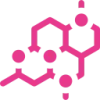Other specialties
- At Prashanth Fertility Research Centre, we only addressed infertility when we first started operating.
- To help couples without children realize their ambitions, we provided the most up-to-date approaches and technologies, and we more than lived up to that promise.
- Shortly after starting Prashanth Multi Specialty Hospital, we expanded our range of services.
- We founded Prashanth Super Speciality Hospital to enhance our reach in Chennai's southern region. The best medical and surgical care in various specialties is provided at this tertiary care hospital in a first-rate setting.
When to choose ICSI treatments?
- ICSI is recommended for couples who haven’t been able to get pregnant through traditional IVF methods.
Traditional IVF
Traditional IVF is where several sperm are placed with the eggs in a lab dish for fertilization. Here, the sperm fertilizes the eggs on its own.
So, what is ICSI?
- ICSI (Intracytoplasmic Sperm Injection) is a type of IVF where a single, healthy sperm is selected and injected into the egg’s cytoplasm through a micropipette.
- ICSI (Intracytoplasmic Sperm Injection) is a type of IVF where a single, healthy sperm is selected and injected into the egg’s cytoplasm through a micropipette.
ICSI Procedure We follow
Ovulation Induction
After consultation with our fertility doctors, the female is administered a course of hormonal injections to stimulate the production of eggs in her ovaries. Through this method, she can produce around 10 to 12 eggs simultaneously.
Drugs like Gonadotropins, which mimic the actions of the body’s natural hormones are given to stimulate follicular growth. Drug dose differs for each person and is calculated based on a number of factors like

Age

Medical history

BMI (Body Mass Index)

Antral follicle count (number of follicles on day 2)

Hormone values.
Details about the prescription and administration of drugs will be explained in detail by the medical staff in the form of an individual ‘Protocol’ letter.
Egg Retrieval
After the fertility injections are administered, follicular growth is monitored through ultrasound, and Doppler scans are done to study blood flow in the follicles and endometrium.
Once the follicular size is roughly 19-20 mm, HCG, the last injection, is given to induce the rupture of follicles.
Once the eggs are mature enough to be fertilized, they are retrieved through transvaginal ultrasound under light sedation or general anaesthesia.
Sperm Retrieval & Semen Analysis
On the same day, the sperm is also collected from the male and is sent for a semen analysis. The semen is tested for sperm volume, motility, and quality.
The best sperm are then chosen for fertilization.
Fertilization
- Once the sperm with the highest quality is selected, it is collected using a thin needle.
- Using a small pipette with a suction bulb, the egg is held in place so the needle can pierce the egg.
- The sperm held in the needle is injected into the egg’s cytoplasm.
Embryo Culture
Once the eggs are fertilized, they are monitored for signs of development and checked every 18 hours, 24 hours, 72 hours, and 5 days till they are ready for transfer.
Embryo Transfer
Of all the developed embryos, the one with the highest chance of pregnancy is selected to be transferred into the uterus for further growth. Pregnancy occurs when the embryo successfully implants itself into the uterine wall.
Who can undergo ICSI treatments?
ICSI can be undergone by couples who have the following problems.
- Men with low sperm count or poor motility.
- Men with more abnormal sperm than normal sperm.
- Men with blockages that prevent sperm ejaculation.
- The sperm is unable to penetrate the outer shell (zona pellucida) of the eggs.
- Couples with previous failed IVF cycles.
- Men with azoospermia.
- TESA (Testicular Aspiration of Sperms) Retrieved sperms.
- For women where the total number of retrieved eggs is less than 5.
Why choose us for your ICSI treatment?
Still unconvinced about choosing us. Here are some reasons why you should choose us for your IVF treatments.
- With our CO2 incubators for semen preparation and our hormone control systems, we can give you an IUI success rate of up to 25-30%
- 50,000+ healthy babies delivered.
- Hi-tech technologies for a successful pregnancy.
- More than 35 years of experience in the field.
- Reasonable cost.
- Men with azoospermia.
- 24/7 support & counselling from our side.
- State-of-the-art infrastructure.
Frequently Asked Questions
In IVF, the sperm and eggs are placed together in a lab dish for fertilization. ICSI is a type of IVF where a single, high-quality sperm is injected directly into the egg’s cytoplasm for fertilization.
With ICSI, you can anticipate a 75% success rate in fertilization. This is equivalent to the success rate for IVF. While the ICSI procedure provides a good success rate, it does come with some risks. It’s possible that a fertilised egg in this manner won’t create a healthy embryo. Consult with your fertility doctor to avoid such risks and give birth to a healthy baby.
The ideal candidates who can choose ICSI as their fertility option are
- Men with poor sperm count, motility, and more abnormal sperm in the ejaculate.
- Men with blockages that prevent sperm ejaculation.
- Couples with previous failed IVF cycles.
- For women where the total number of retrieved eggs is less than 5.
No, the ICSI treatment is not a painful process. During the egg retrieval procedure, a light anaesthetic is given to the patient. Both egg retrieval and embryo transfer are often painless procedures.
